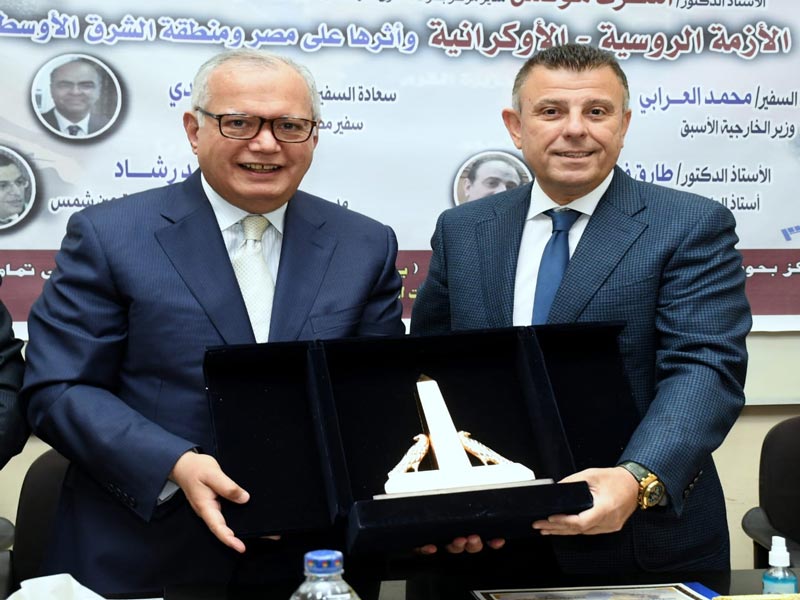The Russian-Ukrainian crisis and its impact on Egypt and the Middle East... A seminar at the Middle East Research Center
Under the patronage of Prof. Dr. Mahmoud El-Metini, President of Ain Shams University, and Prof. Dr. Hesham Tamraz, Vice-President for Community Service and Environmental Development, the Middle East Research Center organized a symposium entitled "The Russian-Ukrainian crisis and its impact on Egypt and the Middle East", in the presence of Prof. Dr. Mahmoud El-Metini, President of the University Ain Shams, His Excellency Ambassador Mohamed Al-Orabi, the former Minister of Foreign Affairs, Prof. Dr. Ashraf Mounis, Director of the Middle East Research Center, His Excellency Ambassador Alaa Al-Hadidi, the former ambassador of Egypt to Russia, and Dr. Eid Rashad, economics teacher at the Faculty of Commerce, Ain Shams University, and Head of the Economic Studies Division at the Center.
Prof. Dr. Mahmoud El-Metini welcomed the guests, expressing his happiness to be among this distinguished elite in the Middle East Research Center, which has a special place at Ain Shams University.
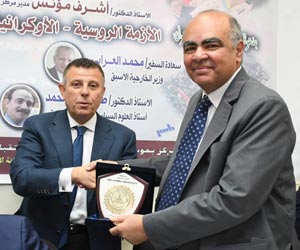 |
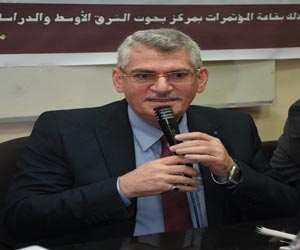 |
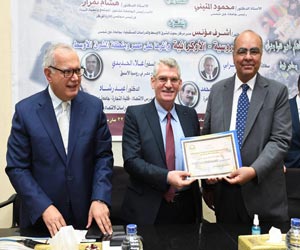 |
||
He also praised the efforts of His Excellency Minister Mohamed Al-Orabi, the former Minister of Foreign Affairs, with regard to his distinguished vision of public affairs, and this is evident through his lectures and knowledge, all of which are good gains that he conveys to us due to his long experience in diplomatic work.
He thanked and appreciated Ambassador Alaa Al-Hadidi, and sent him a special invitation to communicate with the various faculties of the university to benefit from his experiences in diplomatic work, and suggested a special celebration at Ain Shams University on the occasion of the 100th anniversary of the establishment of the Egyptian Ministry of Foreign Affairs.
Prof. Dr. Mahmoud El-Metini also expressed his thanks and appreciation to Dr. Ashraf Mones for his efforts at the Middle East Research Center.
Prof. Dr. Ashraf Munis explained that Russia constantly suffers from its borders, especially towards the Black Sea region, pointing out that Ukraine's accession to NATO threatens Russian security and the Russians will be in trouble if the Crimea is dominated.
For his part, Ambassador Mohamed Al-Orabi, the former Minister of Foreign Affairs, expressed his happiness at his presence at the Middle East Research Center, extending his thanks to the President of the University, Prof. Mahmoud Al-Matini, for the warm reception.
On the Russian issue, he stressed the inadmissibility of invading the land of others to annex it by force, because this would lead to the collapse of the world. He also stressed that Russia would not gain national security and Europe would not gain anything from the Ukrainian invasion.
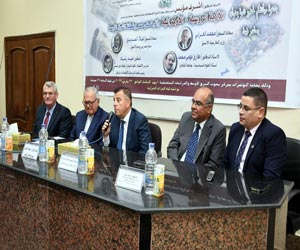 |
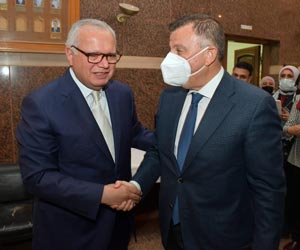 |
|
He also referred to the existence of the United Nations Charter, which gives countries the right to defend their national security, stressing that all losers in this war and that Russia will not return to the international community again, and that the peoples of the Middle East are also losers from this war.
He also made it clear that Russia is no longer a pole that supports or can support Middle Eastern issues in the next stage, and that there are international parties and blocs that stand against Russia in this war, and that economic sanctions have not and will not solve anything on the ground while we are facing a major international predicament.
Al-Orabi indicated that the energy weapon will be used forcefully as a weapon in this war, and that public opinion in Egypt is unbalanced with regard to that war.
He added that the world is in a new stage of western ascent, in addition to the lack of international balance in the next stage and the absence of strong indicators of happiness in countries such as Finland and Austria, which will set aside entertainment and will be more interested in armament and mobilization.
And he sent a message to the world indicating that there are no borders, as the world has become open, and what happens in the East affects the West. Everything crosses borders, viruses, dangers of war, everyone is threatened, and everyone is losing.
He stressed the need to return again to international law, as we are in a phase of chaos that will only end with a return to international law again. Ambassador Alaa Al-Hadidi, the former Egyptian ambassador to Russia, pointed out that Russia is a great power, and Ukraine's joining NATO poses a great danger to Russia.
His Excellency explained that there are reasons for the war, including the West's lack of respect for the 97 agreement, and that they only listened to the language of force.
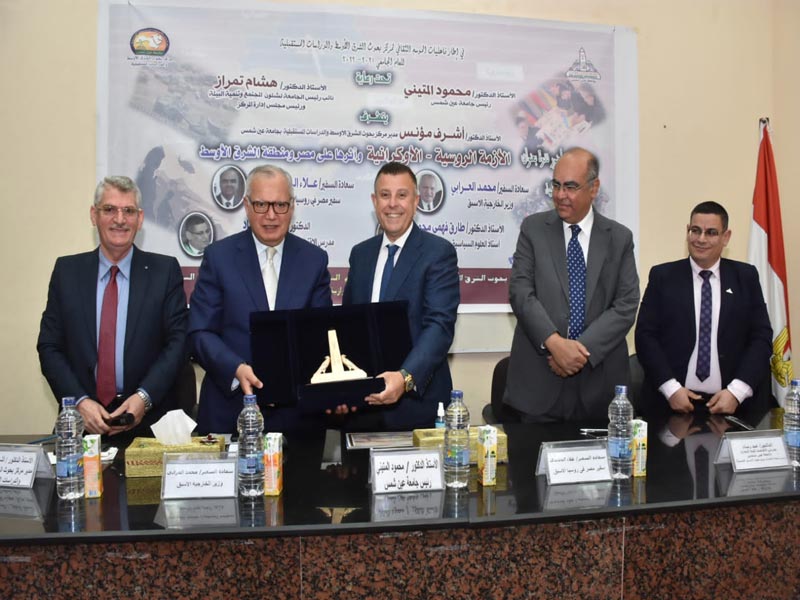 |
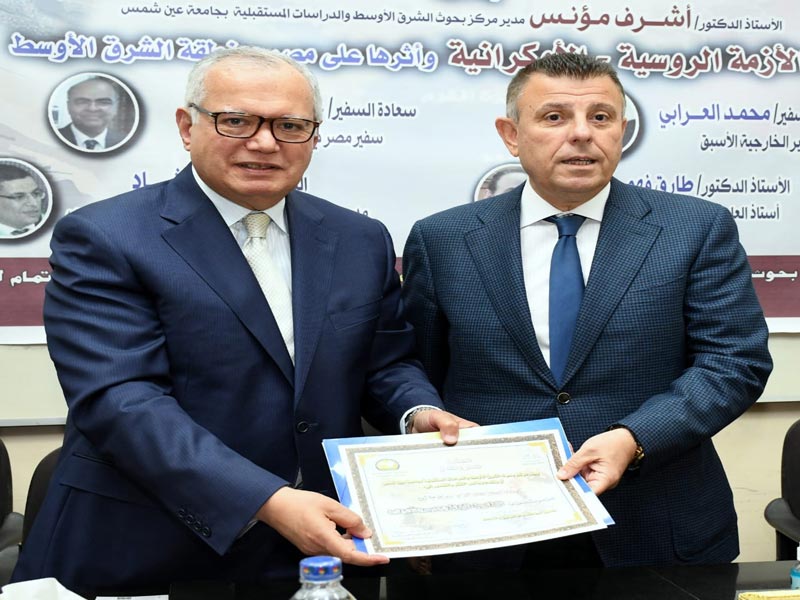 |
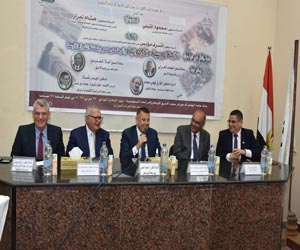 |
||
He pointed out that there were five indicators that encouraged President Putin to enter Ukraine, namely the withdrawal from Afghanistan and the division of the American people in support of and opponents of the Russian position, as well as a split in the European position on how to deal with Russia, in addition to the dependence of European countries on 40% of the natural gas coming from Russia, which The Europeans depend on him, and the consolidation of the relationship between the Russians and China is one of the most important elements on which Putin relied.
At the end of the seminar, Dr. El-Matini honored former Minister of Foreign Affairs Ambassador Mohamed Al-Orabi, former Egyptian ambassador to Russia, Alaa El-Hadidi, and Dr. Eid Rashad, economics teacher at the Faculty of Business, Ain Shams University.
.svg)

